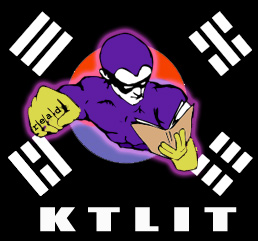An excellent and lucid article today in the K BS Wold entitled “Expectations for increased Korean publications overseas.” It talks about what is currently happening in the overseas market, and what should be done to continue and extend that success.
It gives numbers I did not know, including that
Korea’s export of publication copyrights in 2010 neared 1,500 books. Given that the figure only amounted to 20 in 2001, the recent stat illustrates an explosive growth in Korean publications overseas. From 2001, the export of copyrights jumped to 284 cases the following year and topped 1,000 in 2008. Finally the figure reached 1,477 last year.
Which is good news. As someone who believes that the dam is waiting to burst out there somewhere, this is evidence that pressure is piling up.
The article also notes that this give promise of something beyond mere Hallyu, which, while popular, really only shows a very narrow slice of Korean culture, and a quite hybridized one at that (please note the traditional Korean obsession with the Nobel Prize for Literature^^):
The wave of publications will hopefully inform the world about the aspects of Korea not seen in Korean pop songs or movies or TV shows, and in the long term form the right kind of environment to produce writers worthy of a Nobel Prize and other international distinctions.
At the moment this expansion is primarily in Asia:
The countries that have purchased the greatest number of Korean books include China and other Asian nations. China accounts for about 40% of Korea’s overseas copyrights sales in the past two years. This is followed by Thailand, Indonesia, Taiwan, Malaysia, Vietnam, France, Japan, and Russia.
Still, anecdotal evidence and what is happening on Amazon seem to suggest that this is just beginning in English as well. But again with the Nobel Prize?
The presence of Korean literary works in the global market will draw the attention of foreign publishers and audiences, which will eventually help build the worldwide recognition needed to garner a Nobel Prize in Literature.
But full, 100% marks, for one of the final points. After discussing the need for better translations (which Korean obsess on too much, and which are generally – GENERALLY – adequate) the article concludes:
Publishers of Korean books should use more sophisticated marketing strategies to publicize the cultural and literary worth of Korean works and appeal to foreign audiences. Marketing agents should play to foreigners who wish to get an insider’s look into the Korean psyche and society.
And that is right on – the books that would explode in English are there, they just need to be chosen with an eye for the Western market, translated by bi-cultural translators (or teams), and then marketed in a sensible way. If you don’t believe marketing is important, please read my previous post in which two out of four of the review I found of Kim Young-ha (yesterday) explicity mentioned that the covers drew them in.
Nice job by the KBS!



